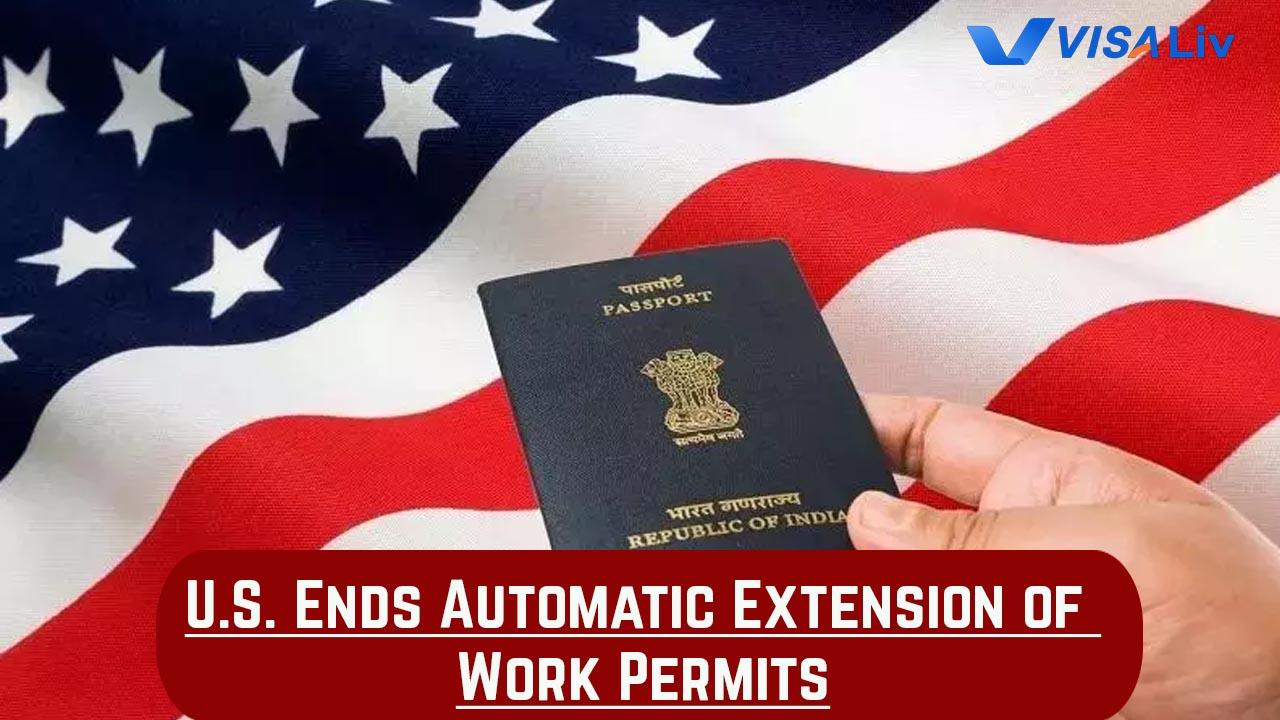
U.S. Ends Automatic Extension of Work Permits
In a major policy shift, the U.S. Department of Homeland Security (DHS) has announced the end of the automatic extension of Employment Authorization Documents (EADs) for foreign nationals, effective October 30, 2025. The decision will impact thousands of immigrant workers, including a large number of Indian nationals currently employed in the United States.
Under the new rule, individuals who file for EAD renewal on or after the effective date will no longer receive an automatic extension of their work authorization while their renewal is pending. Previously, eligible foreign workers were granted an automatic extension of up to 540 days once they submitted a timely renewal application.
DHS stated that the change is aimed at strengthening “screening and vetting processes” for foreign employment authorizations. The agency emphasized that working in the U.S. is a “privilege, not a right,” and that the move aligns with national security priorities.
The policy is expected to particularly affect H-4 visa holders—spouses of H-1B professionals—along with individuals awaiting green card approvals and those with pending asylum or adjustment of status applications. Many of these workers depend on EADs to legally remain employed in the country.
Immigration experts warn that the rule could lead to employment disruptions if renewal applications are delayed, urging foreign workers to file their EAD renewals as early as 180 days before expiry to avoid lapses in work authorization.
While the automatic extension ends for most categories, international students on Optional Practical Training (OPT) will continue to benefit from the 180-day automatic extension period.
This move marks a tightening of the U.S. immigration framework, adding new uncertainty for thousands of legal foreign workers and their families who rely on timely permit renewals to maintain employment stability.